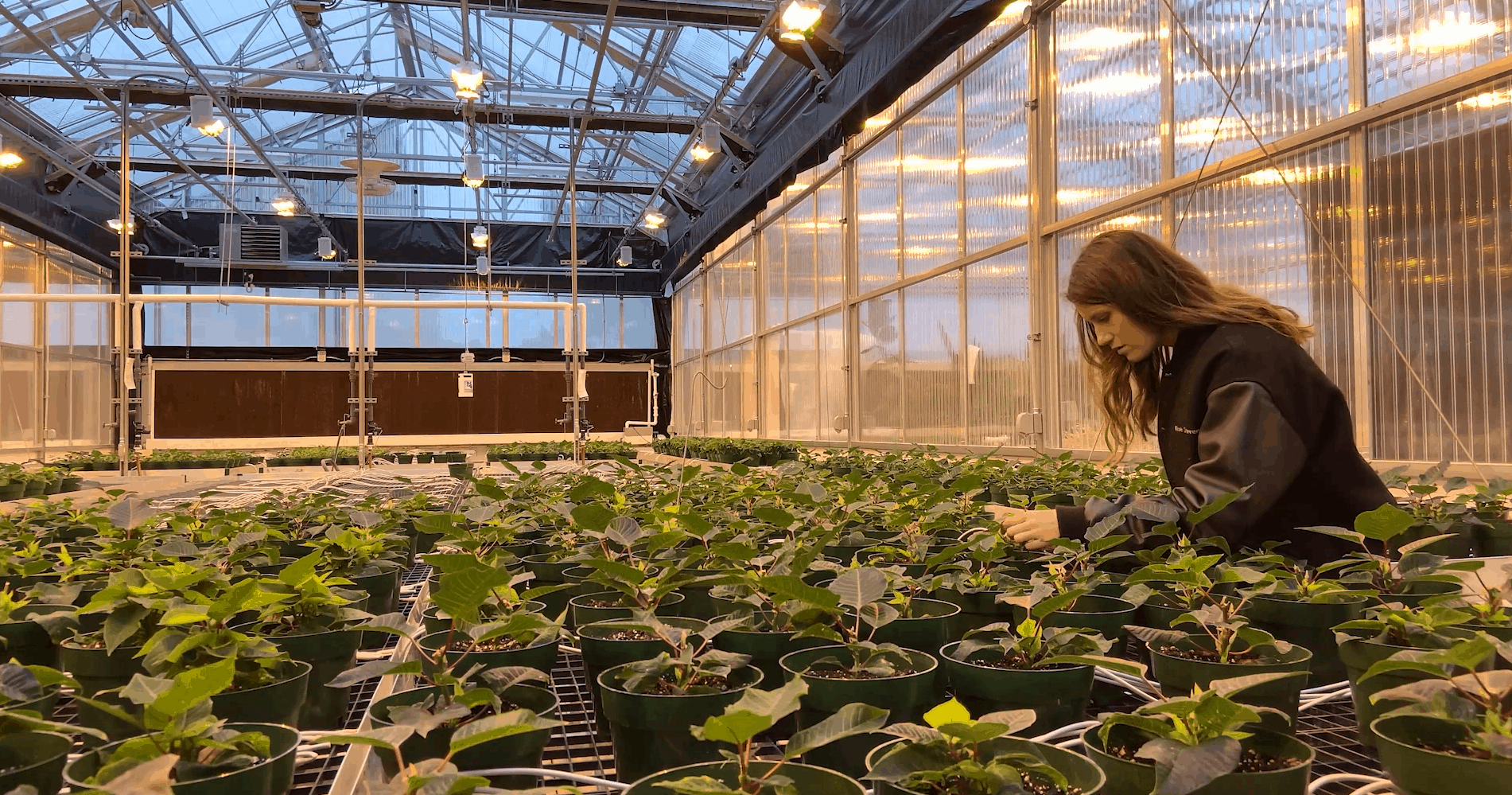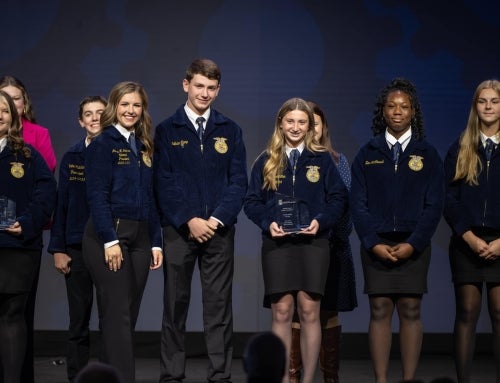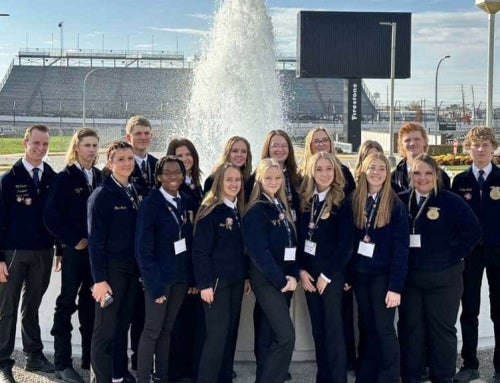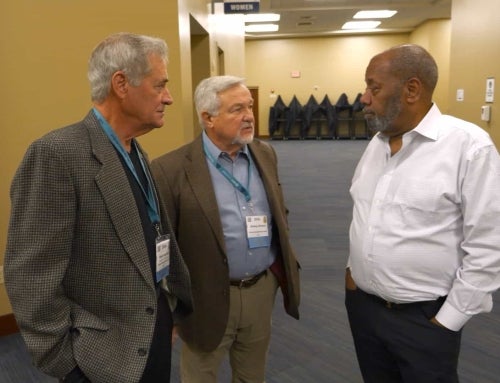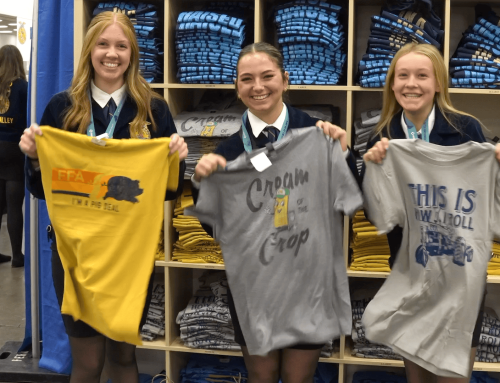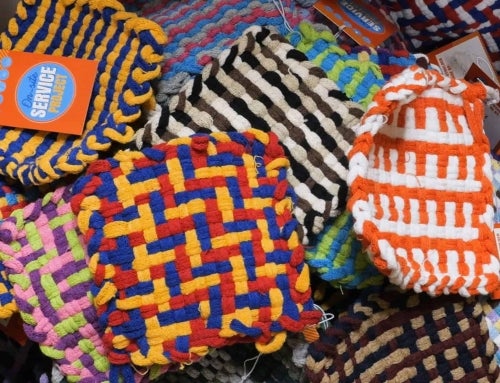Each year at the National FFA Convention & Expo, four FFA members are honored with American Star Awards for outstanding accomplishments in FFA and agricultural education.
The American Star Awards, including American Star Farmer, American Star in Agribusiness, American Star in Agricultural Placement and American Star in Agriscience, are presented to FFA members who demonstrate outstanding agricultural skills and competencies through completion of a supervised agricultural experience (SAE). A required activity in FFA, an SAE allows students to learn by doing, by either owning or operating an agricultural business, working or serving an internship at an agriculture-based business or conducting an agriculture-based scientific experiment and reporting results.
Congratulations to the 2020 American Star in Agriscience winner:
Nicole Stevens, Oklahoma
Agriscience is a family affair for Nicole Stevens — Scott Stevens, her father and FFA advisor at Yukon FFA in Oklahoma, encouraged his children to participate in the National FFA Agriscience Fair. Through her years in FFA, scientific research became a bonding point for the father-daughter pair.
“We competed every year, many projects a year sometimes,” Stevens said. “My sophomore year, I had six. We really liked science. It was super fun for us.”
Starting in eighth grade and going into college, Stevens has been involved in various types of agriscience research, from plant science to animal science.
“For me, the main goal for my research was to make myself a better ag teacher, because I love agriscience so much,” said Stevens, who is now working toward a master’s degree in agricultural education at Oklahoma State University. “I wanted to spread myself through each different type of research.”
In her most recent research experience, Stevens studied ruminant digestion. Using cannulas to insert and remove feed samples in cattle stomachs, the project measured digestion processes to formulate more cost-effective feeding practices. This is particularly important, Stevens said, because of the COVID-19 pandemic’s impact on the cattle industry.
“Beef prices are so expensive because it’s so hard to produce enough beef for the consumers, with all the processing plants being shut down and stuff like that,” Stevens said. “So trying to find out more cost-efficient ways for those farmers to produce enough animals in that time frame with that situation right now, that’s why that research is super important.”
Stevens hopes to take her research experience to the classroom. After earning her master’s degree, Stevens will teach agricultural education for a few years and then return to school for her doctorate. Her advice for FFA members interested in agriscience: Go for it.
“Agriscience is super adaptable,” Stevens said. “[There] is such a broad range that there’s something that every student can be passionate about.”
Stevens competed against the following American Star in Agriscience finalists:
Jacob Bagby, Texas
After years of raising and showing livestock, Jacob Bagby was no stranger to studying sheep nutrition when he first started his agriscience-related supervised agricultural experience. As a high school freshman in Stephenville FFA in Texas, Bagby and another FFA member started evaluating different feed diets for sheep, measuring ruminant stomach pH and weight gain.
“We ended up winning the state [agriscience fair] competition through our full semester of research,” Bagby said. “Then, we advanced to the national level and ended up being fourth place.”
Bagby then extended his first study — he wondered if there was a correlation between feed protein levels and sheep stomachs’ pH and nitrate levels. Higher-protein diets led to higher nitrate levels, he found, which supported his hypotheses. Additionally, Bagby conducted a third research project: He studied U.S. sheep breeders’ opinions on different reproduction methods.
Bagby credits his parents, who have ties to animal science, for helping him conduct sheep nutrition research.
“My mom being in the nutrition field, animal nutrition specifically — she has helped me a lot with the research I’ve done specifically on nutrition and guiding me through these different animal science aspects, as well as my dad, helping me with the reproduction aspect of it by watching over our herd at home and our breeding stock,” Bagby said.
Through his FFA experience, Bagby said participating in the National FFA Agriscience Fair was important to him, but FFA also helped him with technical writing, time management and encouragement.
“I’ve had multiple ag teachers that have helped me along the way,” Bagby said. “Without … their teachings and their guidance and them being right there by my side, I wouldn’t have been able to do it without them.”
Now a student at Texas Tech University, Bagby said he wishes to pursue a graduate degree and continue doing animal science research.
“I want to do this research for everyone and how it affects the animal science industry as a whole,” he said.
Maddie Fugate, Illinois
Maddie Fugate set out to study swine biosecurity at a young age: After a childhood of raising and showing swine, she was introduced to porcine epidemic diarrhea virus (PEDV) while on a ride-along with her father when she was a teen.
“[My dad] and his veterinarian were talking about PEDV and how there’s no real known cure for it,” Fugate said. “The only preventative measure that different farms can take to ensure that they do not get the PDV virus is biosecurity.”
This piqued Fugate’s curiosity, and as a member of Mahomet-Seymour FFA in Mahomet, Ill., she started researching PEDV. Her first project out of six involved studying PEDV transmission on truck tires.
“At the time when I started my research, there was nobody doing research on truck tires and how trucks could really be a vector for biosecurity,” Fugate said. “And the more research we have done into biosecurity, especially after the PEDV epidemic, there has been a lot of different research about even how animals are vectors that could carry this disease onto farms.”
Her research on swine biosecurity circles around risk mitigation, Fugate said.
“That’s essentially why I started my research because I wanted to try and help the swine industry through risk mitigation efforts,” she said. “Biosecurity is essential to our everyday activities, and the more we can learn about it, the more we can improve it, the better off our industry is.”
By following the scientific method and competing in the National FFA Agriscience Fair, Fugate learned that science isn’t a rigid step-by-step process; it’s a circle that allows reevaluation and further study.
But swine biosecurity research is not an endeavor she could have done on her own, Fugate said. Her parents, veterinarians and various swine producers have all helped her and trusted her, especially as she handled and studied a deadly porcine virus.
“I’m just very blessed that there have been so many people who are willing to help me and then also very interested in my research findings and wanted to take those findings back and implement them in their own farms,” Fugate said.
Now in her senior year at Iowa State University, Fugate said she either wants to go to graduate school or find work studying the economic impacts of biosecurity protocols.
Lauren Roberts, Florida
Lauren Roberts started her research journey through FFA, but not initially through an agriscience-focused career development event. As a seventh-grade member of Trenton FFA in Florida, Roberts was asked to do a prepared speech by her advisor. Her speech topic, bee colony collapse disorder, then became her research interest.
“I knew it was a big issue, but I had no experience with bees,” Roberts said. “I really had no idea how important bees were at the time and that we were losing them.”
Now, Roberts has completed four research projects concerning colony collapse disorder in honeybees. Through her research, Roberts zoomed in on a specific issue: She sought to develop a repellent that could keep honeybees away from watermelon fields treated with pesticides. She said she hopes the repellent could help bee populations — and beekeepers and watermelon growers.
“My first year, I worked on finding the repellent and making sure it was safe for honeybees in a lab setting,” Roberts said. “I worked with a lot of honeybee entomologists on that project.”
The next step was making sure the repellent was safe for watermelon plants. Roberts collaborated with plant specialists to further test her product. Then, she surveyed watermelon producers to see if they would use the bee repellent and how much money they would spend on the product.
“I feel like I have grown within each study because I’ve had to meet and network and collaborate with all different types of people: honeybee entomologists, plant specialists, watermelon growers,” Roberts said.
The repellent Roberts has developed is in the patenting process. She now is a beekeeper (albeit being allergic to bee stings) and studies entomology at the University of Florida. Though she loves bees, she has other career goals.
“I think my heart lies in helping people,” Roberts said. “So I hope to attend dental school once I graduate UF in 2024 … and become an orthodontist.”
Roberts’ top advice for FFA members looking to start an agriscience-related supervised agricultural experience: “Never be afraid to ask for help.”
Sixteen American Star Award finalists from throughout the U.S. are nominated by a panel of judges who then interview the finalists. Four are named winners and receive cash awards. Case IH, Elanco Animal Health and Syngenta sponsor the awards.

